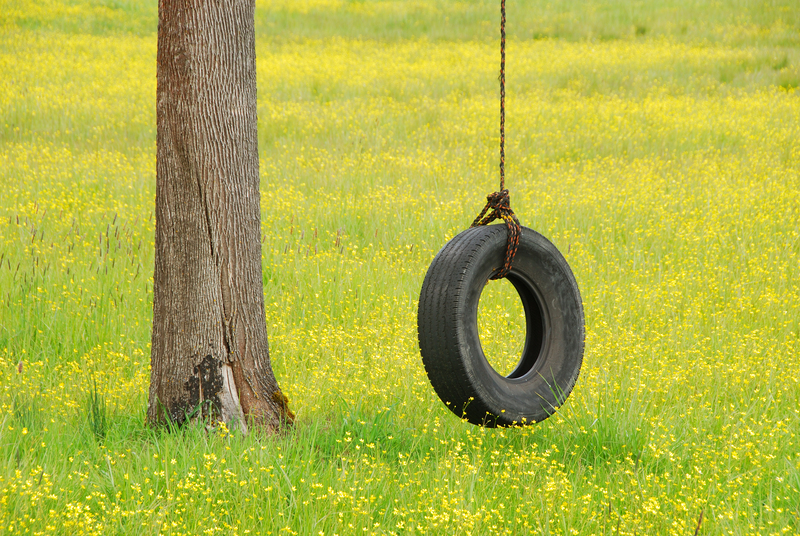Drive Recycling Improvements in the Office: A Comprehensive Guide
Workplaces play a crucial role in promoting sustainable practices. Among these, office recycling stands out as an easy, impactful, and necessary action. In this comprehensive guide, we explore actionable ways to drive recycling improvements in the office, offering tips for launching, maintaining, and scaling your office recycling program.
Why Office Recycling Matters
The modern office is a hub of activity--and waste. From paper and plastic to e-waste and coffee pods, the average employee generates over 2 pounds of waste per day at their desk. A well-planned office recycling program not only helps save resources but also shapes company culture, cuts costs, and meets the expectations of eco-conscious clients and employees.
- Reduces landfill usage
- Lowers waste management expenses
- Enhances brand reputation
- Meets legal and regulatory requirements
- Engages and motivates staff
Assessing Your Office's Recycling Baseline
Before you initiate improvements, conduct a recycling audit. This involves observing the types, volumes, and sources of waste in your workspace. Key steps include:
- Walkthrough of the office with a notepad
- Counting and cataloguing bins--trash, recycling, compost, specialty
- Identifying common items ending up in the wrong bins
- Analyzing current recycling rates against general office waste output
Engage staff surveys to gather insights on their current recycling habits and perceived obstacles. Understanding your baseline helps tailor your recycling improvements for maximum impact.

Strategies to Drive Recycling Improvements in Your Workplace
1. Make Recycling Accessible
Convenience is key to improving recycling in the office. If bins are hard to find or confusing, employees won't use them correctly. Enhance accessibility by:
- Placing recycling bins next to every trash can--especially in high-traffic areas like kitchens, copiers, and meeting rooms
- Using clear, labeled bins with images for accepted materials
- Color-coding bins (e.g. blue for paper, green for glass, gray for landfill)
- Regularly emptying and cleaning bins to maintain hygiene and motivation
2. Expand Accepted Recyclables
Many workplaces focus only on paper--but offices generate much more. Drive recycling improvements by partnering with local recyclers to accept a broader range, such as:
- Plastics (bottles, containers, packaging film)
- Cardboard (shipping boxes, folders)
- Glass bottles and jars
- Metal cans and foil
- Printer cartridges, batteries, and e-waste
- Coffee pods and food packaging (with specialized collectors)
Tip: Designate bins for special collections--like electronics recycling drives, hazardous waste, and hard-to-recycle plastics.
3. Educate and Engage Employees
Behavior change is at the heart of every sustainable initiative. Invest in ongoing employee education and engagement to boost participation:
- Host green team meetings and office presentations
- Post visible, simple signage above every bin--images and bullet points work best
- Run friendly competitions between teams or departments
- Send regular progress updates and tips via email or office bulletin boards
- Organize Q&A sessions and invite recycling experts for workshops
Empower recycling champions: Identify and train motivated employees to serve as ambassadors, answering questions and encouraging peers to recycle properly.
4. Reduce Contamination for Better Results
Contamination occurs when non-recyclable items are mixed with recyclables, rendering batches unusable. To drive recycling improvements in the office, set up clear guidelines for:
- Emptying containers before recycling
- Avoiding food waste in paper and plastics
- Removing staples, clips, and sticky notes from paper (if required by your recycler)
- Separating plastic wrap and film from rigid plastics
- Not recycling disposable coffee cups (unless specified)
Highlight "wish-cycling" risks: Placing unapproved items in the recycle bin with good intentions often does more harm than good. Reinforce the importance of following approved lists.
5. Partner with Vendors and Building Management
Improving recycling in shared office buildings requires collaboration. Meet with building managers and janitorial staff to:
- Align on collection schedules and acceptable materials
- Ensure communal recycling bins are available in shared areas
- Adopt green procurement strategies (e.g., ordering recycled paper, sustainable supplies)
- Request reporting on recycling volumes collected and contamination rates
Build relationships with local recyclers to keep up-to-date on processing rules, specialty programs, or local recycling events.
6. Leverage Technology for Greener Offices
Modern workplaces can capitalize on technology to streamline and improve recycling:
- Install smart sensors in bins to monitor fill levels and optimize collection frequency
- Use digital signage and screens for dynamic recycling reminders or instructions
- Provide e-learning modules or gamified apps tracking individual contributions
- Adopt document management software to cut down on paper usage and support digital workflows
Data-driven insights enable more targeted recycling improvements in the workplace, helping you spot problem areas or recognize high-performing teams.
Sustaining and Scaling Office Recycling Programs
Regularly Review and Report Progress
Track your recycling efforts by monitoring:
- Total waste generated, recycled, and diverted from landfill
- Contamination rates and most common misplacements
- Participation levels by team, floor, or department
Share monthly or quarterly updates in newsletters, all-hands meetings, and on intranet dashboards. Celebrating milestones--like tons diverted or money saved--keeps everyone motivated.
Integrate Recycling with Office Culture
Make recycling part of your employee onboarding, training materials, and core values. Encourage leaders to model recycling behavior and invite volunteers to shape future improvements.
Host themed events--like Zero Waste Weeks, Earth Day challenges, or upcycling contests--to spark creativity and strengthen your green culture.
Adopt Circular Economy Initiatives
Take your recycling program to the next level by adopting circular economy principles:
- Donate or refurbish used office furniture, electronics, and supplies instead of discarding
- Support local businesses that use recycled materials or offer take-back schemes
- Implement closed-loop systems (e.g., reusable dishware, refillable office supplies)
These steps build resilience, reinforce your sustainability commitments, and can differentiate your office to clients and talent.
Common Challenges and How to Overcome Them
Lack of Awareness or Engagement
Solution: Launch regular educational campaigns, easy-to-read signage, and incentives (like eco-friendly prizes). Recognize and reward positive behavior to build momentum.
Limited Recycling Infrastructure
Solution: Work with building management to install more bins, improve signage, and add specialty collection points for e-waste or compost.
Changing Rules and Confusion
Solution: Stay updated with your local recycling provider. Use monthly "Did You Know?" messages to address FAQs and policy changes.
Low Participation or Bin Contamination
Solution: Move bins to more convenient locations. Conduct periodic spot checks and gently remind employees of best practices. Share positive results and stories.
Remote or Hybrid Workforces
Solution: Send digital resources and guides for at-home recycling. Host virtual workshops and encourage eco-friendly setup ideas for home workspaces.

Innovative Ideas to Enhance Office Recycling
- Green Wall of Fame: Showcase employees who champion recycling or submit creative ideas
- Waste-Free Lunches: Organize events with zero single-use items
- Eco-Swag and Rewards: Offer reusable bottles, mugs, or branded tote bags for top recyclers
- Recycling Hackathons: Invite teams to brainstorm and implement new sustainability initiatives
- Partnerships with Local Schools or Nonprofits: Donate recyclables or support community environmental programs
The Future of Recycling in Offices
Office recycling programs will continue to evolve--with tech-enabled solutions, smarter materials, and expanded recycling streams. Companies that lead the way in sustainable waste management not only reduce their environmental impact but also attract business, talent, and loyalty.
With thoughtful planning, constant engagement, and a willingness to adapt, any office can dramatically improve its recycling rates. The ripple effect is real: each recycled item helps build a cleaner, greener world for all.
Conclusion: Take Action to Drive Sustainable Change
Driving recycling improvements in the office is a journey, not a destination. Start with quick wins--like accessible bins and clear signage--then build momentum with education, employee engagement, and creative programming. Measure progress, celebrate success, and keep striving for a greener workplace.
If your organization commits to continuous recycling improvement, the benefits go well beyond the bin--fostering community, saving money, and ensuring you're part of the solution to our planet's waste crisis.
- Review your current recycling setup today
- Involve your team in brainstorming improvements
- Connect with specialists for customized recycling programs
By taking these steps, your workplace can become a model for sustainability and environmental stewardship. Start making a difference--one recycled item at a time.